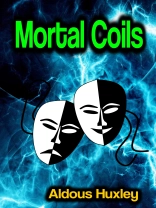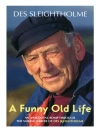Mortal Coils Aldous Huxley – Mortal Coils is a collection of five short fictional pieces written by Aldous Huxley in 1921.
As a Hollywood screenwriter Huxley used much of his earnings to bring Jewish and left-wing writer and artist refugees from Hitler’s Germany to the US. He worked for many of the major studios including MGM and Disney.
In 1953, Huxley and Maria applied for United States citizenship. When Huxley refused to bear arms for the U.S. and would not state his objections, he had to withdraw his application. Nevertheless, he remained in the U.S.
In the spring of 1953, Huxley had his first experience with the psychedelic drug mescaline. Undoubtedly, he was drawn to their mind-altering powers and was a firm believer thereafter.
In 1955, Maria Huxley died of cancer.
The following year, 1956, Huxley married Laura Archera, also an author, as well as a violinist and psychotherapist. She would later write ‘This Timeless Moment’, a biography of Huxley.
Huxley was diagnosed with laryngeal cancer in 1960; in the years that followed, with his health deteriorating, he wrote the Utopian novel ‘Island’, and gave lectures on ‘Human Potentialities’.
On his deathbed, unable to speak due to advanced laryngeal cancer, Huxley made a written request to Laura for ‘LSD, 100 µg, intramuscular.’ She obliged with an injection at 11:20 a.m. and a second dose an hour later; Aldous Leonard Huxley died aged 69, at 5:20 p.m. on 22nd November 1963.
About the author
Aldous Leonard Huxley was an English writer and one of the most prominent members of the famous Huxley family. He spent the latter part of his life in the United States, living in Los Angeles from 1937 until his death in 1963. Best known for his novels and wide-ranging output of essays, he also published short stories, poetry, travel writing, and film stories and scripts. Through his novels and essays Huxley functioned as an examiner and sometimes critic of social mores, norms and ideals. Huxley was a humanist but was also interested towards the end of his life in spiritual subjects such as parapsychology and philosophical mysticism. By the end of his life, he was widely acknowledged as one of the pre-eminent intellectuals of his time.












